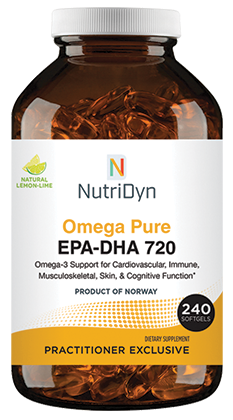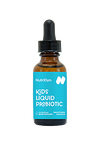Having a higher blood level of EPA combined with DHA was associated with larger total brain volume and hippocampal volume at the time of the MRI scans.
"We were shocked to find so many biological pathways being affected by omega-3 fatty acids," remarked study coauthor Donald Jump, who is a professor at the Oregon State University College of Public Health and Human Sciences.
Omega 3 Improves Biological Pathways and Brain Shrinkage with Age
- News
- 12 Jul, 2021
The attached blog has been edited, Reed Wilson, director of Health and Communications from this original site: Higher omega-3 levels equal less brain shrinkage with age
See Attached Article : Higher omega-3 levels equal less brain shrinkage with age
 On December 17, 2013, the journal PLoS One published the results of research which indicates that the benefits of omega 3 polyunsaturated fatty acids (PUFAs) are wider than previously known. The study was the first of its kind to utilize metabolomics, an analysis of metabolites, to learn more about the fatty acids' benefits in liver disease.
On December 17, 2013, the journal PLoS One published the results of research which indicates that the benefits of omega 3 polyunsaturated fatty acids (PUFAs) are wider than previously known. The study was the first of its kind to utilize metabolomics, an analysis of metabolites, to learn more about the fatty acids' benefits in liver disease.
Researchers at Oregon State University studied the effects of omega 3 in the livers of mice in which nonalcoholic steatohepatitis (NASH) was induced by a standard Western diet consumed for 16 weeks. Some of the animals received the omega-3 PUFA EPA and/or DHA along with the diet and others received olive oil.
Supplementation with DHA was more effective than EPA at normalizing NASH gene expression markers and other factors altered by the Western diet. The team found that DHA affected all major metabolic pathways to exert a protective effect against the diet's ability to induce the disease. The researchers observed changes in vitamin, carbohydrate and lipid metabolism, as well as protein function.
"We were shocked to find so many biological pathways being affected by omega-3 fatty acids," remarked study coauthor Donald Jump, who is a professor at the Oregon State University College of Public Health and Human Sciences. "Most studies on these nutrients find effects on lipid metabolism and inflammation. Our metabolomics analysis indicates that the effects of omega-3 fatty acids extend beyond that, and include carbohydrate, amino acid and vitamin metabolism."
"A lot of work has been done on fatty liver disease, and we are just beginning to explore the potential for DHA in preventing or slowing disease progression," Dr Jump noted.
"Fish oils, a common supplement used to provide omega-3, are also not prescribed to regulate blood glucose levels in diabetic patients," he added. "But our studies suggest that DHA may reduce the formation of harmful glucose metabolites linked to diabetic complications."
Edited by Reedd Wilson
Higher omega-3 levels equal less brain shrinkage with age.
 A report published online on January 22, 2014 in the journal Neurology® reveals an association between higher levels of the omega-3 fatty acids eicosapentaenoic acid (EPA) and docosahexaenoic acid (DHA) and greater brain volume in older age. "These higher levels of fatty acids can be achieved through diet and the use of supplements, and the results suggest that the effect on brain volume is the equivalent of delaying the normal loss of brain cells that comes with aging by one to two years," commented lead author James V. Pottala, PhD, of the University of South Dakota in Sioux Falls.
A report published online on January 22, 2014 in the journal Neurology® reveals an association between higher levels of the omega-3 fatty acids eicosapentaenoic acid (EPA) and docosahexaenoic acid (DHA) and greater brain volume in older age. "These higher levels of fatty acids can be achieved through diet and the use of supplements, and the results suggest that the effect on brain volume is the equivalent of delaying the normal loss of brain cells that comes with aging by one to two years," commented lead author James V. Pottala, PhD, of the University of South Dakota in Sioux Falls.
The study included 1,111 participants in the Women's Health Initiative Memory Study, which was a subset study of subjects enrolled in the Women's Health Initiative. Subjects were between the ages of 65 to 80 years upon enrollment. Blood samples were analyzed for red blood cell fatty acid levels and magnetic resonance imaging was conducted a median of eight years later to evaluate brain volume.
Having a higher blood level of EPA combined with DHA was associated with larger total brain volume and hippocampal volume at the time of the MRI scans. (The hippocampus is an area of the brain involved with learning.) No association with ischemic lesion volumes and omega-3 fatty acids was observed.
"In this cohort of postmenopausal women, lower red blood cell EPA plus DHA levels correlated with smaller total and hippocampal brain volumes, the former being an indication of cognitive aging and the latter being centrally involved with Alzheimer's disease pathology," Dr Pottala and his colleagues conclude. "This study thus adds to the growing literature suggesting that higher omega-3 fatty acid tissue levels, which can be achieved by dietary changes, may hold promise for delaying cognitive aging and/or dementia."
Edited by Reed Wilson













